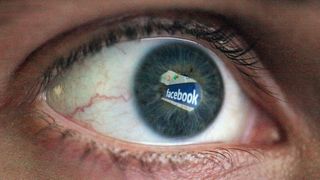Amazon has, after a long wait, announced it will be opening headquarters in both New York City and northern Virginia.
The decision ended a year-long search for “HQ2”, the second headquarters of the online behemoth, during which cities across the United States vied to attract the company and its promise of jobs and economic revitalisation. Everyone, it seemed, wanted Amazon. Except, apparently, the people who live in the cities that won the bid.
Critics have pointed to the massive tax giveaways, overcrowding, and skyrocketing housing prices sure to accompany Amazon’s move to these areas, which were hardly in economic decline to begin with. Add to this the strong critiques of Amazon’s history of paying low wages to warehouse workers, and for many Americans, the bloom is off the retailer’s rose.
Perhaps because of their dependence on these companies, Americans have started to look at tech less as a saviour and more as a threat.
But Amazon is not the only tech-industry giant coming in for criticism these days. A deep, damaging exposé of Facebook’s practices published in The New York Times drew more attention to the toll the social media site has taken on American culture and politics.
It wasn’t supposed to be this way. When the tech industry emerged in the 1990s, Americans embraced it as a panacea: a solution not only to the economic problems of a deindustrialising country but to its political and social problems as well. Tech would bring education to the masses, obliterate racial and regional differences, and provide data-driven solutions to a politics hopelessly mired in partisanship.
The American people weren’t the only ones drawn to this techno-utopian dream. Tech companies themselves saw themselves as the architects of a new golden age. In Silicon Valley, innovators at companies like Google, Facebook, Amazon, and Twitter prided themselves on not only generating enormous profits (or at least raising astronomic amounts of capital to fund their ventures), but also on delivering a social good. Indeed, these two things were seen as two sides of the same coin: what was good for tech was good for society. As their fortunes rose, so did America’s.
It’s the kind of hubris that sends a Greek god rushing for his lightning bolts. And indeed, in the past few years we have seen Americans start to turn on the tech industry. Not by giving up their products: hundreds of millions of Americans use Amazon - 80 million are Prime members - and 68 per cent have Facebook accounts. But, perhaps because of their dependence on these companies, Americans have started to look at tech less as a saviour and more as a threat.
That’s not because there’s anything particularly unique about the tech industry. It’s just that, after all these years, Americans have discovered that it’s an industry just like any other, intent on protecting its bottom line regardless of the cost. For years Amazon workers, in the US and elsewhere, have struggled with low wages and difficult working conditions. Facebook, it turns out, has been working to discredit its critics while doing little to stem the tide of fake accounts spreading misinformation. Twitter continues to provide a platform for white nationalists and rarely responds effectively to complaints of harassment and threats.
That social media served as an important portal of Russian interference has led Americans to view those companies more suspiciously (even as they maintain their regular use of the sites).
Now people are demanding action. Under intense pressure from activists and politicians like Bernie Sanders, Amazon last month raised its minimum wage to $15 an hour, pledging to lobby Congress to raise the federal minimum wage to match (the current federal minimum is $7.25). That decision was made not because Amazon is inherently good - for years it has failed to offer a living wage - but because it faced public protest, bad press, and potential regulation.
Facebook and Twitter have not fared as well, in part because their companies are more firmly wed to the notion that they can do no wrong. That has been a more difficult fiction to maintain in the wake of the 2016 election, when hacking social media and hacking democracy seemed to be one and the same. That social media served as an important portal of Russian interference has led Americans to view those companies more suspiciously (even as they maintain their regular use of the sites).
Politicians have taken note of this public discomfort, and in one of the few bipartisan moments of the past several years, both Republicans and Democrats have focused attention on Facebook in particular (just this autumn, Mark Zuckerberg, Facebook’s founder, had to testify before Congress). Calls for regulating Google, Facebook, and Twitter have been mounting on both the left and the right in recent months.
What form that regulation might take is still an open question. But because they’re so ubiquitous, these companies risk being treated as monopolies and thus regulated as public utilities, like water, electricity, and natural gas. Indeed, the more Americans rely on these services, the more likely it is that Congress will deem them essentials in need of regulation.
Americans have a soft spot for utopian ideas; the nation’s history is littered with them. It’s no wonder that the tech industry would spark that part of the national spirit. But reality eventually shatters all utopias. The challenge now is to find the best way to harness the benefits of the industry while limiting its harms.




.jpg?rect=0,80,3000,1989&fp-x=0.5&fp-y=0.44772296905517583&w=320&h=212&fit=crop&crop=focalpoint&auto=format)

